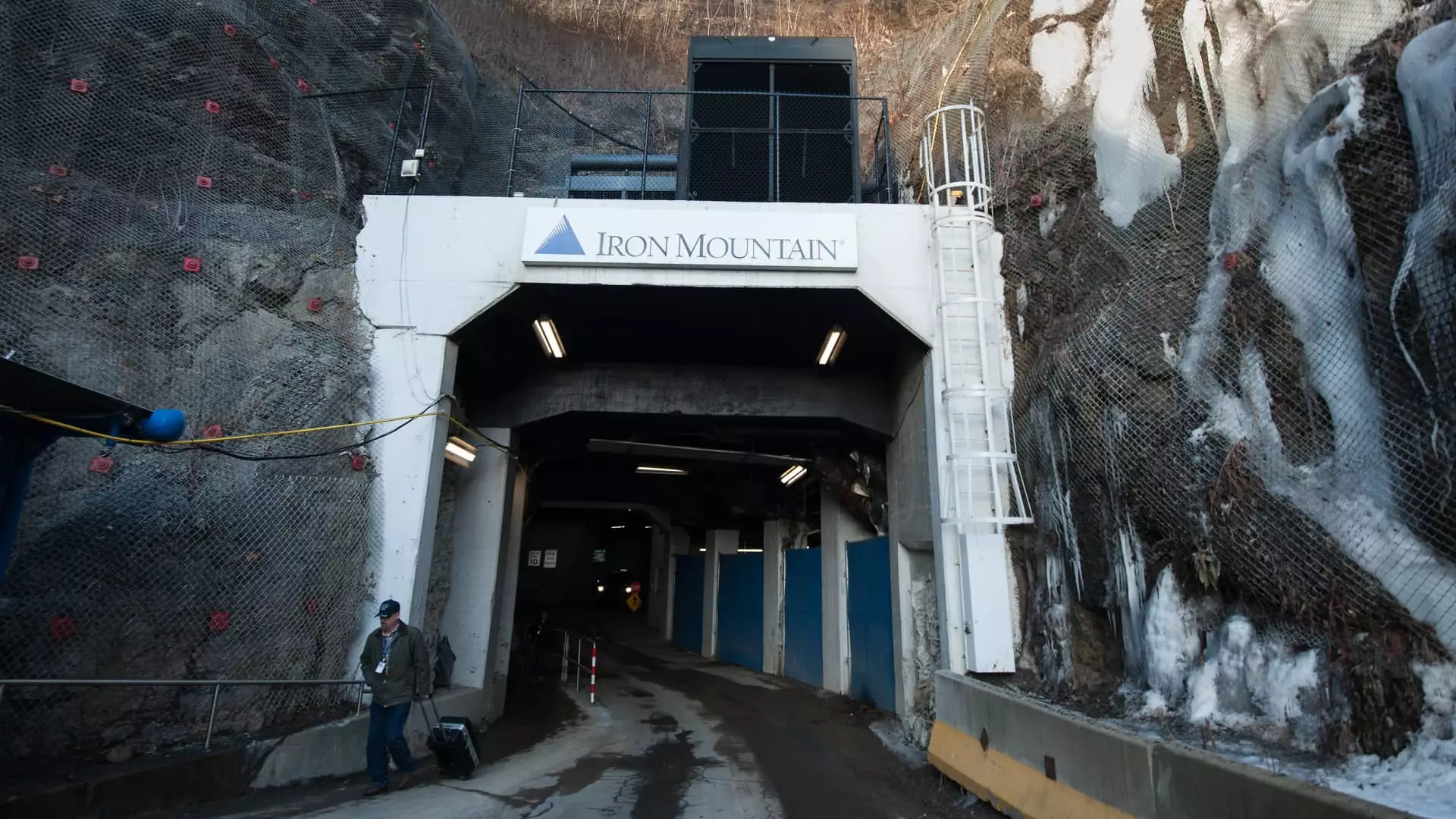In an unexpected twist during a recent Oval Office meeting with President Donald Trump, Elon Musk exposed what he claimed to be glaring inefficiencies within the federal government’s operations, particularly highlighting a limestone mine utilized for storing vital retirement paperwork. Dubbed the DOGE initiative, or the Department of Government Efficiency, Musk’s revelation has ignited a debate surrounding the intersection of innovation, government bureaucracy, and corporate interests, all while shedding light on the often-overlooked sector of information management.
Musk’s vivid depiction of a mid-20th century limestone mine, established in 1955, where federal retirement paperwork is stored 200 feet underground, paints a stark picture of government inefficiency. He characterized the mine’s elevator as a bottleneck, suggesting that its sluggish pace directly impacts the timeline for processing retirement applications of federal employees. The incredulous nature of Musk’s commentary, “Doesn’t that sound crazy?” resonates with a growing impatience among the public and industry leaders who seek modernization in government operations.
As Musk’s remarks gained traction, Iron Mountain—the company responsible for maintaining the mine—saw its stock take a hit, prompting a response from CEO Bill Meaney. Meaney positioned the DOGE initiative as a potential growth avenue for Iron Mountain, given their investment in digital transformation projects aimed at federal agencies. He framed the current situation as an opportunity, suggesting that a pivot towards efficiency might bolster their existing contracts and enhance service offerings.
Iron Mountain’s financials provide a striking context for this discussion. The company generates approximately $130 million in revenue from digital services, dwarfing the meager $10 million acquired from government contracts for physical document storage. This discrepancy underscores a critical shift in information management practices; as businesses increasingly digitize records, reliance on traditional storage methods may need reevaluation.
While Musk’s concerns focus on the antiquated processes employed by the federal government, the disparity in Iron Mountain’s revenue sources suggests a broader awakening in the corporate world. Analysts have noted that Iron Mountain’s commitments to digital records management align well with government mandates for efficiency, and the pressure being applied by the current administration could forcibly accelerate this transformation.
In the immediate aftermath of Musk’s comments, investors expressed apprehension over Iron Mountain’s future contracts with the federal government. The stock plummeted over 10%, indicating a market reaction rooted in fear of possible cancellations or cuts to government spending. Here, one must question whether such a rapid response reflects a sound understanding of the business model of Iron Mountain—or simply an overreaction to sensationalist commentary.
Wells Fargo analyst Eric Luebchow contended that the market’s response was disproportionate, pointing out that Iron Mountain’s revenue does not hinge upon a single government customer. Should the federal government sever ties with the mine, termination fees would afford Iron Mountain a cushion while they pivot their business model. Such insights not only highlight the resilience of the company but also underline the importance of understanding the strategic implications of such large-scale government initiatives aimed at restructuring.
Musk’s remarks and the ensuing discussion about efficiency do more than just rattle a single company’s stock; they serve as a clarion call for those engaged with federal contracts to brace for potential upheaval. The emphasis on slashing government inefficiencies could lead to sweeping changes in how firms interact with federal agencies. Companies that rely on traditional documentation methods risk being sidelined as the government seeks innovative solutions in the face of heightened scrutiny.
Importantly, as Musk advocates for a shift away from outdated methods of paperwork processing—pointing out how digitization could reallocate workforce resources towards more constructive contributions—it reflects a deeper conversation about the role of technology in governance. This initiative may ultimately highlight the necessity for a paradigm shift within governmental frameworks, leading to the evolution of how public services are delivered in an increasingly digital age.
In navigating this confluence of technology and bureaucracy, Elon Musk has thrust the conversation about government efficiency into the limelight. As stakeholders from various sectors react, it becomes evident that both opportunity and risk accompany such disclosures. The potential for reshaping federal processes through innovative practices stands as a testament to the evolving landscape of government operations. Ultimately, the challenge lies in balancing the urgency for modernization against the complex realities of federal functions and contracts. Only time will tell if Musk’s call for change will materialize into a tangible transformation, but his comments undeniably signal a turning point in the dialogue surrounding government efficiency and the corporate entities involved.

